The Appeal of Androgyny: Why Femboy Anime is Taking the Internet by Storm
In biology, androgyny is used in the same context as hermaphrodites or those with both male and female sexual organs.
However, in gender presentation, androgyny is someone who expresses their gender through both feminine and masculine features.
Anime is a popular medium of visuals and storytelling.
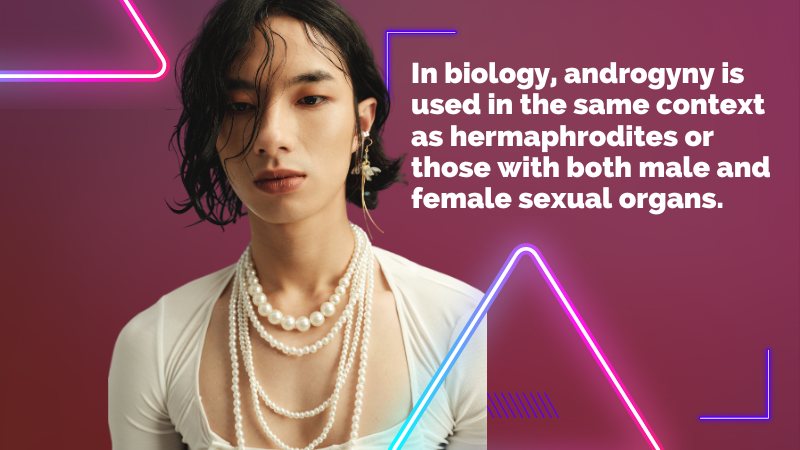
With ~72% of the world population tuning in to watch it regularly, it’s not surprising to discover more minority populations in each of them.
Internet frenzy only propels this level of fame – and so, we notice more and more femboy anime characters who indirectly become the torchbearers for femboys in real life to feel more accepted in pop media.
Historical Context and Cultural Significance
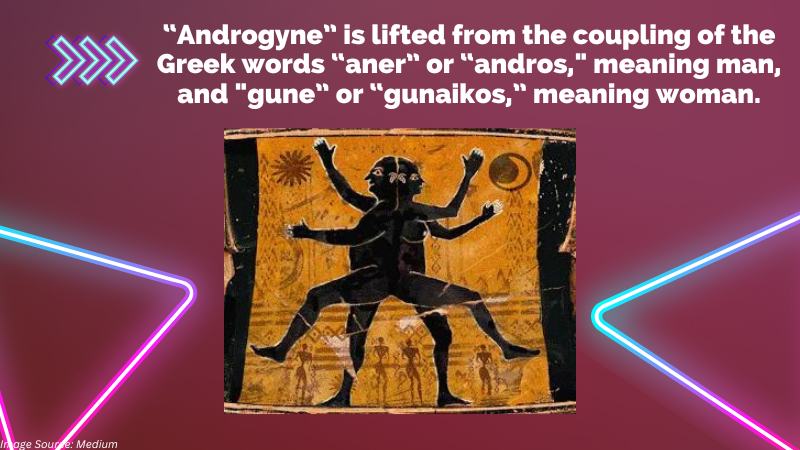
“Androgyne” is lifted from the coupling of the Greek words “aner” or “andros,” meaning man, and “gune” or “gunaikos,” meaning woman.
This resulting word then describes something or someone with the elements of both sexes.
Over the years, there’s a long list of misinterpretations of the word “androgyny.”
This misuse gave way to conflicting ideas that diluted the original meaning of it.
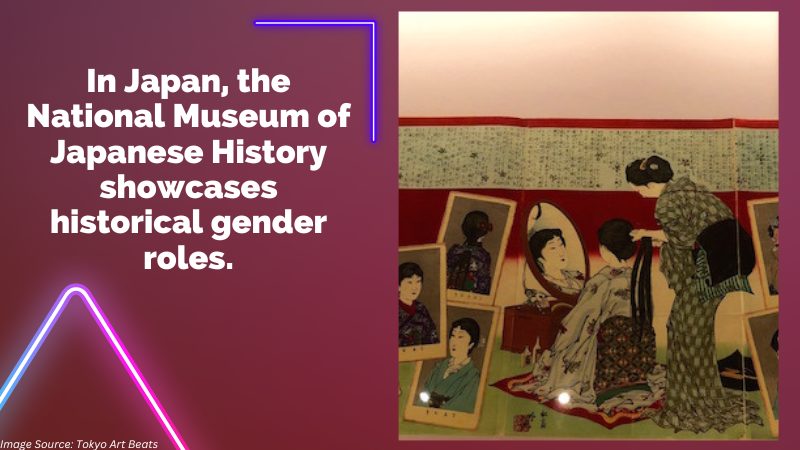
For those in the femboy community, perhaps the one with the most connection to their presentation is someone mentioned in ancient mythology.
The child of Aphrodite and Hermes, called Hermaphroditus, is a god with both male and female sex.
In Greek and Roman art, this androgynous being is often portrayed as someone with a female figure and a male sexual organ.
As for traditional theater, gender-bending is common, highlighting the unimportance of biological gender in art.
In Japan, the National Museum of Japanese History showcases historical gender roles.
In premodern times, beauty was valued over gender, seen in literature and samurais’ same-sex relationships.
Artistic Expression and Character Design
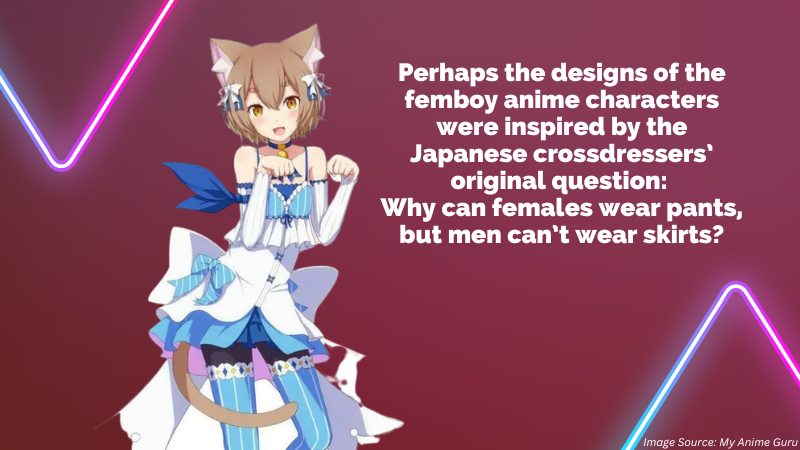
Perhaps the designs of the femboy anime characters were inspired by the Japanese cross-dressers’ original question: Why can females wear pants, but men can’t wear skirts?
More than fashion and aesthetics, femboys in visual media are curated alongside their creative character development.
Often, they are presented with a troubled life, with nuances of how they can express their genuine selves without others questioning their choices.
These characters are then given edgy, stylish clothing, accessories, and vibrant makeup to make them stand out among the rest.
In doing so, it sends a message: These androgynous femboy characters are more than just a feast for the viewers’ eyes.
Impact on Identity and Representation
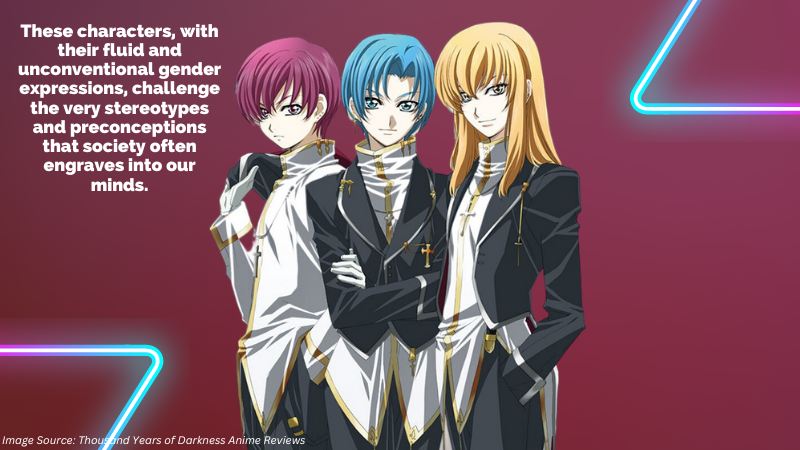
At the heart of the appeal of femboy anime lies a psychological fascination that captures both our imagination and intellect.
These characters, with their fluid and unconventional gender expressions, challenge the very stereotypes and preconceptions that society often engraves into our minds.
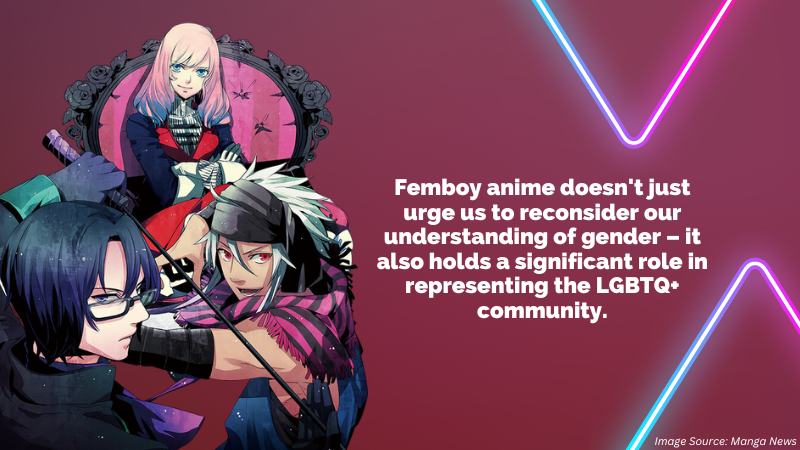
Femboy anime doesn’t just urge us to reconsider our understanding of gender – it also holds a significant role in representing the LGBTQ+ community.
These characters, while not always explicitly identified as such, offer fertile ground for queer readings and interpretations.
The presence of femboy characters contributes to the visibility of non-binary and transgender identities.
By depicting characters who exist outside the traditional binary, anime creators participate in a meaningful discourse that extends beyond the screen.
Social Media and Internet Culture
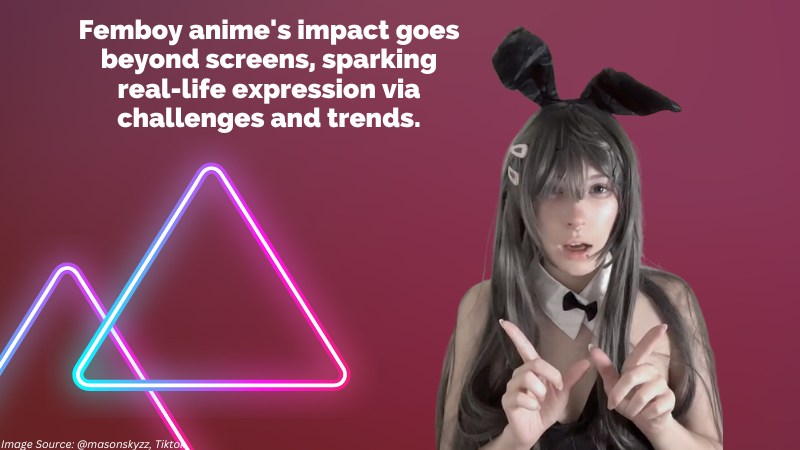
The internet’s emergence led to online fandoms centered around femboy anime.
These global communities deeply engage in discussions on characters, stories, and social implications.
Reddit and Discord facilitate active, curious spaces.
Enthusiasts share theories, art, and insights, extending to fan creations like art, fiction, and cosplay.
Femboy anime’s impact goes beyond screens, sparking real-life expression via challenges and trends.
Androgynous makeup tutorials and influencers on platforms like TikTok embrace this aesthetic, bridging the digital and physical realms.
Femboy Animes to Try
Below are only some femboy anime recommendations you can watch and see for yourself:
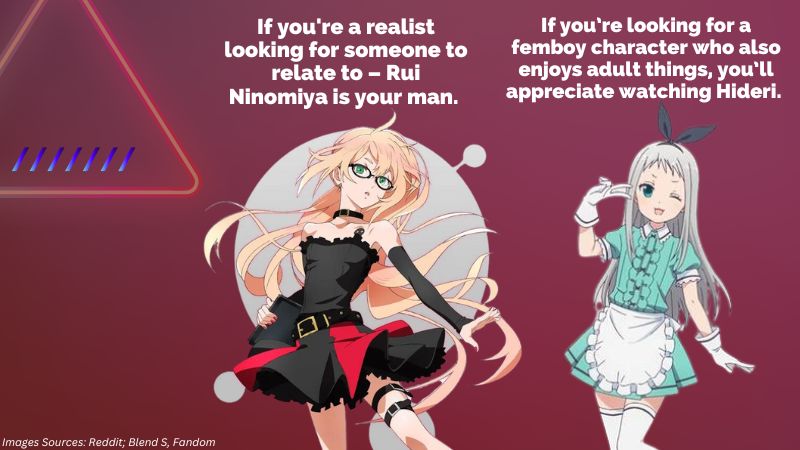
Rui Ninomiya in Garchaman Crowds
If you’re a realist looking for someone to relate to – Rui Ninomiya is your man.
He’s a prodigy who sees everything for what they are and is usually pessimistic about most things.
Rui mostly cross-dress to disguise and investigate.
Hideri Kanzaki in Blend-S
If you’re looking for a femboy character who also enjoys adult things, you’ll appreciate watching Hideri.
In this anime, he was a farmer who dreamed of being a glamorous idol.
And since most idols appear feminine, he embraced being a femboy.
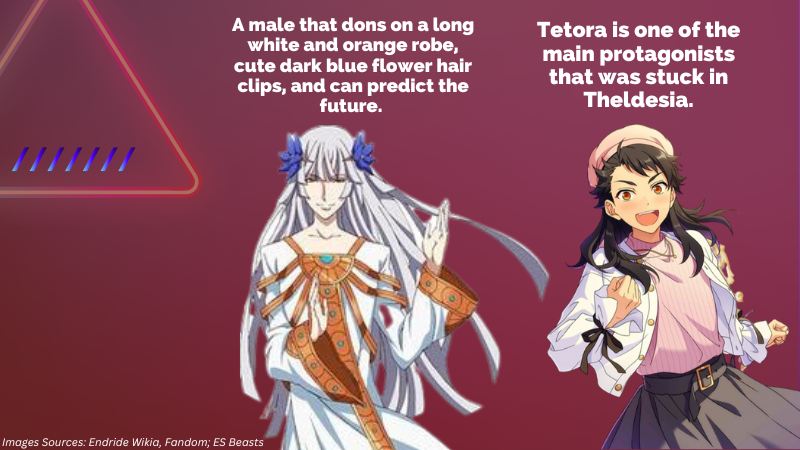
Eljuia in Endride
A male that dons on a long white and orange robe, cute dark blue flower hair clips, and can predict the future.
Meet Eljuia in this fantasy animation released in 2016.
Tetora/Tetra in Log Horizon
Tetora is one of the main protagonists that was stuck in Theldesia.
He’s a human cleric-idol introduced in the second season of the anime with long, pink hair and a showy costume.
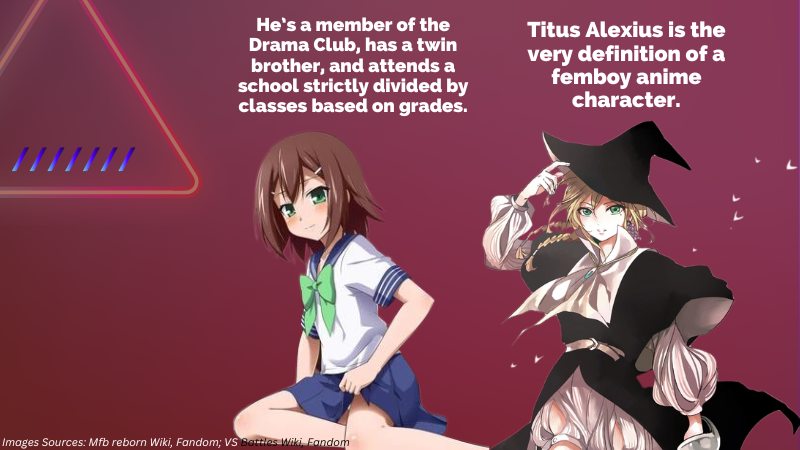
Hideyoshi Kinoshita in Baka To Test
He’s a member of the Drama Club, has a twin brother, and attends a school strictly divided by classes based on grades – that’s how tiring Hideyoshi’s life is.
Wait, there’s more – he also has to deal with everyone mistaking him for a girl!
It only shows that some naturally looks fem – and that’s okay!
Titus Alexius in Magi
Titus Alexius is the very definition of a femboy anime character. He has flowy, long hair, a lithe body, a high-pitched voice, and wide expressive eyes.
On top of that, he’s a high magician who was mistaken for a female by the main protagonist.
He isn’t afraid to show off his masc and fem traits.
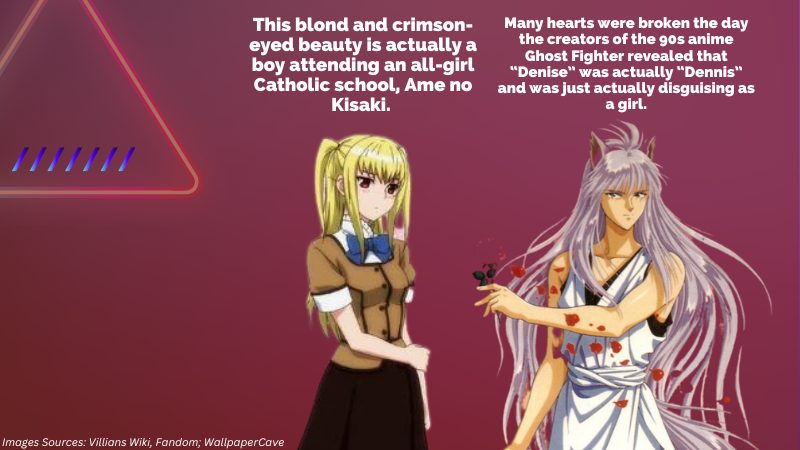
Mariya Shidou in Maria†Holic
Are you up for some undercover shenanigans?
Well, this blond and crimson-eyed beauty is actually a boy attending an all-girl Catholic school, Ame no Kisaki.
His goal?
To be the chairman of both the all-male and all-female schools.
If that isn’t ambition, we don’t know what is!
Denise/Dennis (Yoko Kurama) in Ghost Fighter
Many hearts were broken the day the creators of the 90s anime Ghost Fighter revealed that “Denise” was actually “Dennis” and was just actually disguising as a girl.
It wasn’t such a problem in the original Japanese run, but when the anime had a global adaptation, many were confused.
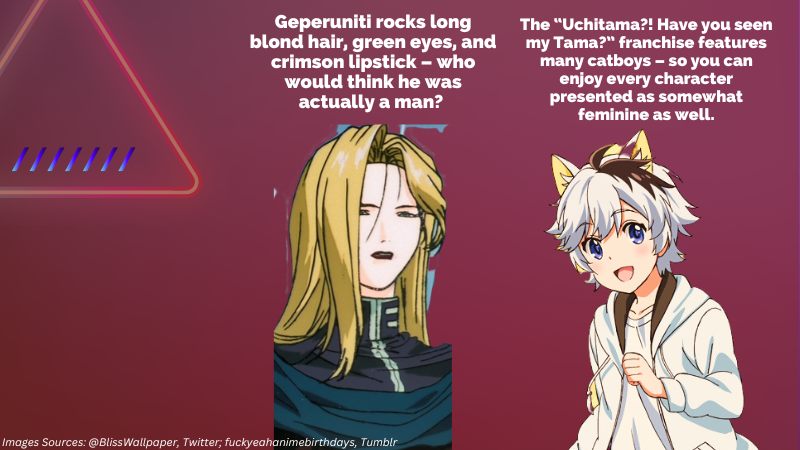
Geperuniti in Macross 7
Geperuniti rocks long blond hair, green eyes, and crimson lipstick – who would think he was actually a man?
In 1994? Not many.
Aside from being a charming character in his presentation, Lord Geperuniti was actually Protodeviln’s supreme leader.
How can he not be when he can control the minds of his faction’s captured soldiers?
Tama Okamoto in Uchitama?! Have you seen my Tama?
To be honest, the “Uchitama?!
Have you seen my Tama?” franchise features many catboys – so you can enjoy every character presented as somewhat feminine as well.
This slice-of-life anime is a great watch as a feel-good series after a long day.
Crossover Appeal and Genre Impact
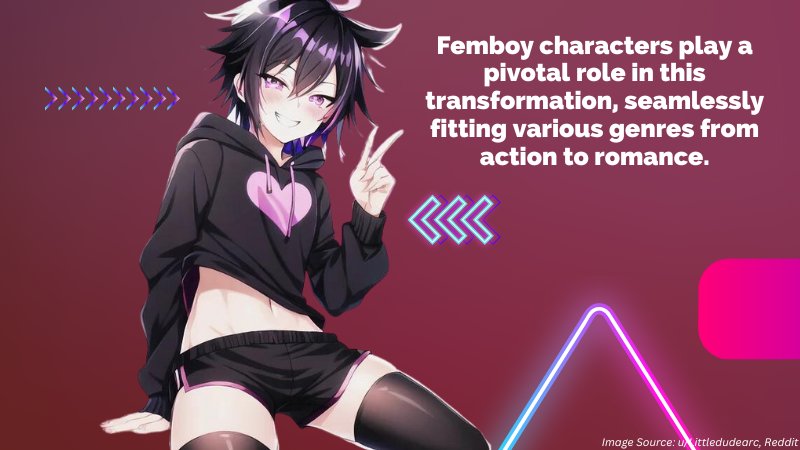
Anime’s essence lies in its evolving nature and capacity to challenge norms.
Femboy characters play a pivotal role in this transformation, seamlessly fitting various genres from action to romance.
This adaptability weaves narratives appealing to diverse audiences.
Femboy anime’s influence is expansive, transcending borders, cultures, and languages.
Its stories foster cultural exchange, bridging societies with universal themes of self-discovery and defying societal norms – universally relatable issues.
Global reach introduces translation challenges, requiring precise subtitling and dubbing to maintain authenticity.
Preserving intent while ensuring accessibility underscores the significance of balancing originality with international appeal.
Conclusion
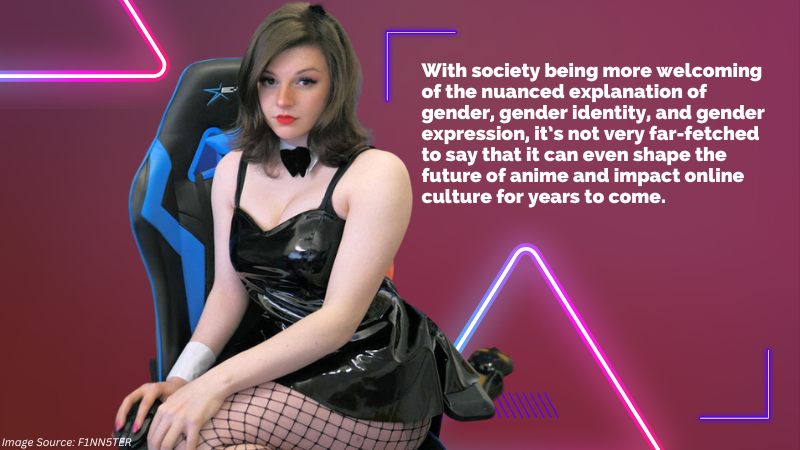
The allure of androgynous, femboy anime characters and their on-screen stories will only grow from here on out.
With society being more welcoming of the nuanced explanation of gender, gender identity, and gender expression, it’s not very far-fetched to say that it can even shape the future of anime and impact online culture for years to come.
FAQs About Femboy Anime
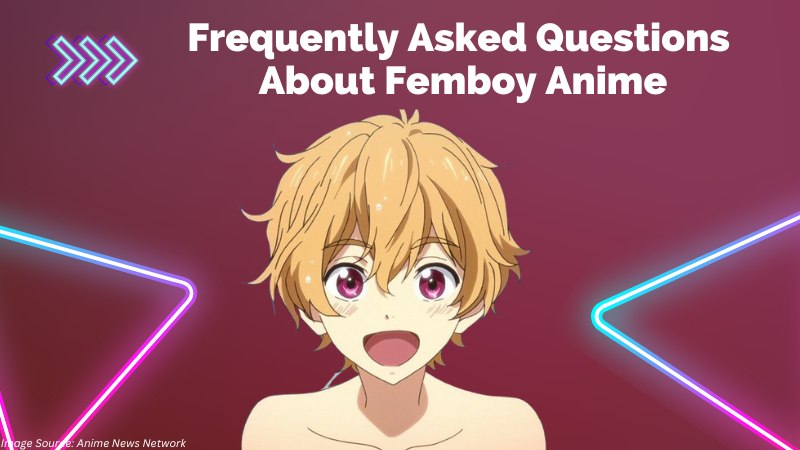
What does the term “femboy” mean in the context of anime?
In anime, a “femboy” refers to a male character who has traits typically associated with femininity, such as appearance, mannerisms, or fashion.
All while they still have masculine elements.
Often, this term is used to describe characters who challenge traditional gender norms and add depth and diversity to the animation’s plot.
How does androgyny contribute to character complexity?
Androgyny adds layers of complexity to characters by defying conventional gender assumptions.
It prompts identity exploration and urges characters to navigate between societal roles.
This intricacy can lead to compelling narratives that burrow into themes of self-discovery and the uniqueness of and distinctions between human experiences.
How do fans engage with femboy anime characters on social media?
Devoted fans create and maintain online communities discussing characters’ personalities, symbolisms, and stories.
They produce fan art, write fanfiction, and do cosplay.
Social media platforms like TikTok and Instagram feature challenges, makeup tutorials, and discussions that celebrate the characters’ multifaceted appeal.
Can androgynous characters be empowering for LGBTQ+ individuals?
Absolutely. Androgynous characters offer representation to LGBTQ+ individuals, showcasing diverse gender expressions and identities.
They can serve as role models that echo the experiences and internal struggles of those seeking validation and connection.
These characters can also help validate non-binary and transgender identities and further a sense of empowerment and acceptance.
Are there cultural differences in the perception of femboy anime between Japan and the West?
Yes, there are differences. While Japan has a historical context for androgynous characters, the West’s understanding may diverge due to cultural distinctions.
However, the global appeal of femboy anime highlights shared human experiences.
Cultural exchange enriches perceptions, bridging gaps and sparking meaningful discussions on identity and expression.
- The Journey of Confidence: From Self-Doubt to Self-Love Through Crossdressing
- What to Expect for Your First Time Going Out as a Sissy in Public?
- Breaking Gender Norms: Why Gender Expression Is a Playground, Not a Cage
- Why 2025 Is the Best Time to Start Crossdressing and Express Your True Self
- The Truth About Crossdressing: History, Meaning, and Misunderstandings
- Joining TVChix: The Online Space That Changed My CD Experience
Established in 2009, We are a recognized manufacturer and seller of professional crossdressing products.
It is our aim to become not just the most creative manufacturer but also a very considerate seller, as we provide the best quality products for crossdressers all around the world.
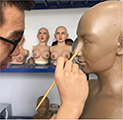
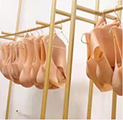















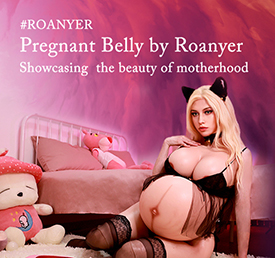





 Breast Forms
Breast Forms  Body Suit
Body Suit  Realistic Mask
Realistic Mask  Femini Girdle
Femini Girdle Hip & Butt Enhancement (8)
Hip & Butt Enhancement (8) Penis Prosthesis
Penis Prosthesis Fake Muscle
Fake Muscle Bikini
Bikini  Wig
Wig  Corsets
Corsets Course
Course service@roanyer.com
service@roanyer.com +8618652200711
+8618652200711 Facebook
Facebook YouTube
YouTube Twitter
Twitter Instagram
Instagram




